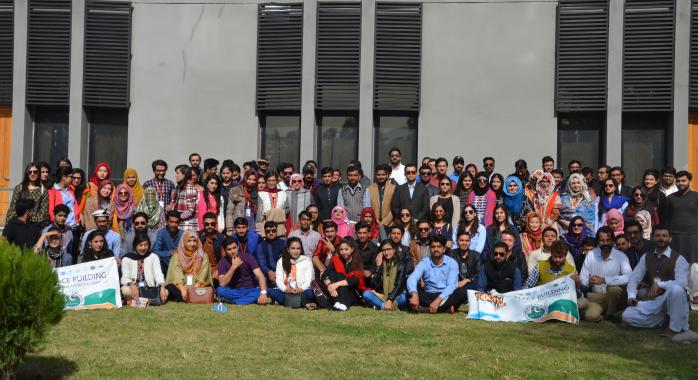
The National Youth Summit 2018 organised successful sessions where students from all over the country came together and expressed their thoughts on some emerging issues. Towards the end, they passed resolutions and offered recommendations to the authority figures.
The first session was on ‘Ethics of Disagreement.’ It was discussed that we do not try to understand the opinions of others, we tend to just disagree with them without really listening to their point of view. We should not merely try to impose our opinions on others instead we should also respect perspectives of opponents as well. Ethics of disagreement has a connection with ‘freedom of expression’ since everyone has a right to express their thoughts and opinion and their right shouldn’t be curbed. ‘Ethics of disagreement’ are important for the growth of the whole society as they establish empathy and acceptance.
The resolutions passed in this session emphasised on listening to others and to promote constructive criticism. It was also stressed that one should not take negative advantage of the anonymity offered by computer screens and be respectful and empathetic on social media too. Also, we should stop the spread of misconceptions about groups of people based upon their cast, religion or sect.
The second session was on Environmental Challenges with special emphasis on Water Crisis. In this session it was discussed that state intervention is required in a manner that the state facilitates construction of small streams and channels because water flowing through them will naturally get cleaned. Individual-level conservation of water is also required, for instance, checking for leakages in households and repairing them. Also, selective plantation (keeping in mind the invasive and native species) should be done rather than planting just for the sake of plantation drives. Furthermore, the State should focus on non-dam water reservoirs like natural and man-made wetlands. Agricultural system of Pakistan is considered as one of the most inefficient systems of Pakistan. Hence, focus should be diverted on managing the water used by the landlords. Currently, Pakistan's irrigation system is ‘turn based’ (every land owner has a turn) which should rather be ‘need based’.
The third session was on the ‘Role of Youth in the Reconstruction of National Culture.It was discussed that the national culture is the amalgamation of various ethnic cultures in Pakistan. We have been suppressing our national culture in favor of the Western culture because we deem that culture superior. Although it is true that we are living in a global culture and the phenomenon of ‘cultural adoption’ cannot be denied yet the problem arises when we completely ignore our own culture.
Our culture can be explained in terms of ‘diversity’ and ‘unity.’ In a nutshell, the resolution concluded with the collective resolve to get rid of certain inherent biases which establish some cultures in Pakistan as superior and others as inferior. We should promote local cultures by emphasising the importance of language, art and culture indigenous to Pakistan. At an individual level, we should play an active role in preserving our local ethnic cultures which collectively form our national culture.





